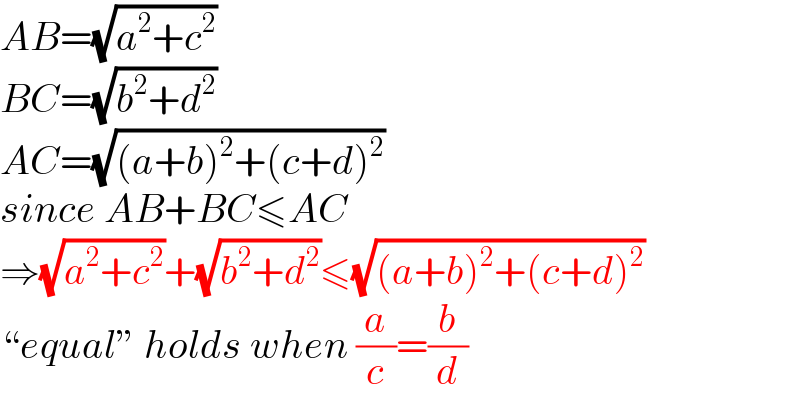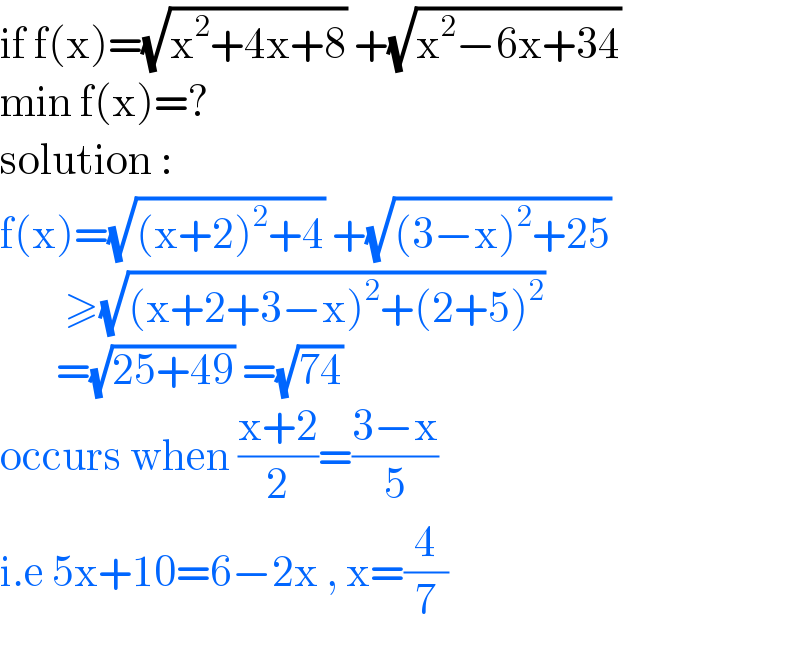
Question and Answers Forum
Question Number 156137 by cortano last updated on 08/Oct/21

Answered by mr W last updated on 09/Oct/21

Commented by mr W last updated on 09/Oct/21

Commented by mr W last updated on 09/Oct/21

Commented by cortano last updated on 10/Oct/21

Commented by cortano last updated on 10/Oct/21

